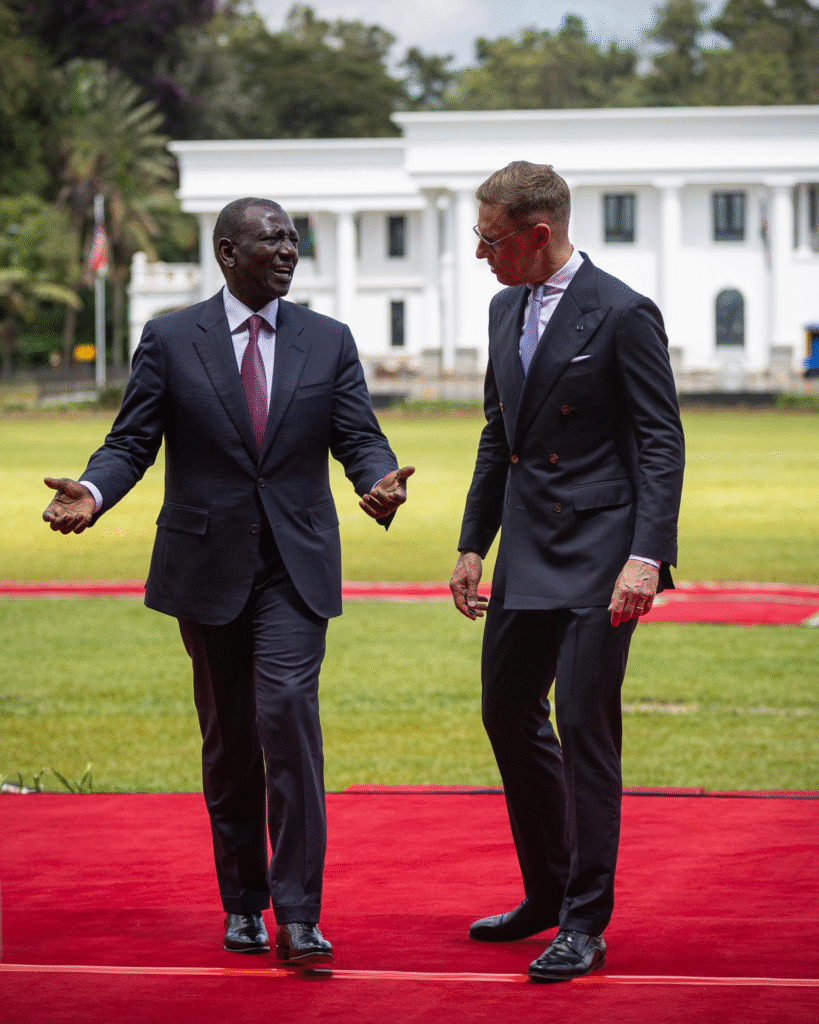Finland’s President Alexander Stubb has described Kenya as a pivotal “swing state” in shaping the future of the global order, as Western and Eastern powers intensify efforts to court the Global South.
Speaking during a TV interview, on his first official visit to Kenya, President Stubb drew historical parallels to major turning points in global politics—1918, 1945, 1989—and argued that the world is now entering a similar period of realignment.
In this new landscape, he said, the Global South—not the traditional powers—will determine the trajectory of global governance.
“We’re witnessing a shift,” said President Stubb. “And Kenya is one of the ten countries that will help decide which way the world tilts.”
He laid out his thesis from his upcoming book The Triangle of Power: Rebalancing the New World Order, which describes a three-pole contest: the Global West, trying to preserve the current multilateral system; the Global East, led by China and Russia, challenging it; and the Global South, emerging as the deciding force.

Stubb advocated for urgent reforms in global institutions, including the expansion of the UN Security Council to include at least two African permanent members.
He also called for restructuring the global financial system, stating that African countries face disproportionately high borrowing costs.
“Africa doesn’t have a debt problem. It has a cost of debt problem,” he said. “Twenty-five African states spend more servicing debt than on health care.”
President Stubb addressed concerns that Europe’s increasing defense budgets—amid security tensions with Russia and uncertainty around U.S. NATO commitments—might divert funds from partnerships with countries like Kenya.
He reassured: “This is not just about aid. It’s about building equal trade partnerships, especially with nations like Kenya that are thriving democracies with growing influence.”
Stubb’s visit reflects a broader Western effort to strengthen ties with Africa as China deepens economic influence and Russia expands its diplomatic footprint.
For Finland, aligning with key African nations like Kenya is part of a long-term strategy to promote a rules-based international order.
The Big Brother Problem
As Finland deepens its engagement with Kenya and the broader Global South, it does so while battling growing tensions with its historic aggressor—Russia.
Having officially joined NATO in 2023 after decades of neutrality, Finland now finds itself at the frontline of geopolitical friction in Europe. The move followed escalating fears triggered by Russia’s invasion of Ukraine and increasing military assertiveness across the region.
Stripped of Russian energy supplies and heavily reliant on Western military support, Finland is turning to strategic alliances beyond Europe. Its recent outreach to Kenya is not just about diplomacy—it’s about survival and long-term stability.
President Alexander Stubb’s visit to Nairobi signals a deeper intent: to court Africa’s rising influence in shaping the new world order, while also securing alternative economic and political allies.